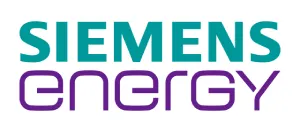Headline: Opposition MPs Protest Changes in Waqf Bill Meeting
Opposition Walkout Highlights Concerns Over Waqf Bill Presentation
In a dramatic turn of events during a Joint Parliamentary Committee meeting on the Waqf (Amendment) Bill, several Opposition Members of Parliament (MPs) staged a walkout on October 28, 2024. They expressed strong discontent over alleged alterations made to the presentation by the Delhi Waqf Board. The incident unfolded as the Delhi Waqf Board’s administrator, Ashwini Kumar, faced accusations of modifying a report without the approval of the Delhi government or its Chief Minister, raising significant questions about transparency and procedural integrity.
Context and Key Players
The meeting was convened to discuss the Waqf Amendment Bill, which is pivotal in overseeing and managing properties and trusts established for charitable purposes under Islamic law. Waqf properties are intended to support various community needs and require careful and responsible governance. The controversy erupted when opposition members, including Sanjay Singh from the Aam Aadmi Party (AAP), Mohammed Abdulla from the Dravida Munnetra Kazhagam (DMK), and Congress’s Naseer Hussain and Mohamed Jawed, protested against what they labeled as an unauthorized and unilateral alteration of crucial information.
According to the opposition, the changes made by Kumar suggested a lack of local government foresight, casting doubt on the legitimacy and accountability of the Waqf’s decision-making processes. This incident became a flashpoint not only for the ongoing legislative discourse but also for wider discussions regarding government accountability in India.
The Allegations: Unilateral Changes Igniting Outrage
Opposition MPs voiced their frustration during the proceedings, asserting that such modifications to the Waqf Board’s initial report violated procedural norms. Ashwini Kumar, who also serves as the Municipal Corporation of Delhi (MCD) Commissioner, was accused of not only altering the report but doing so without consulting or informing key officials, including the Chief Minister.
Sanjay Singh noted, "It is unacceptable for the administrator to change the presentation without proper authorization, undermining the very essence of democratic oversight." Such statements highlight a broader sentiment among opposition members regarding potential power imbalances and the need for checks and balances within government entities.
Impact of the Walkout on Waqf Bill Discussions
After the walkout, the opposition MPs eventually returned to the meeting, indicating a keen interest in continuing discussions despite the earlier disruption. The incident, however, drew attention to the larger narrative surrounding the management of Waqf properties and sparked debates around accountability mechanisms in local governance.
In light of these events, the potential implications for the technology sector arise from the need for improved transparency and communication technology in government operations. As stakeholders increasingly demand accountability, integrating advanced civic technology solutions could play a crucial role in enhancing public administration practices.
The Broader Implications for Governance and Policy
Events like this walkout underscore the importance of maintaining transparent governance frameworks that can instill confidence among constituents. The technology sector can assist in this endeavor – offering tools that enable better data sharing and engagement between government bodies and the public. Platforms that facilitate real-time information dissemination and feedback mechanisms are essential in enhancing accountability.
As the committee deliberates on the Waqf Amendment Bill, the need to involve input from an array of stakeholders, including community leaders, legal experts, and technological innovators, becomes evident. This multidisciplinary approach could foster a more comprehensive understanding of community needs and expectations.
Public Reaction and The Way Forward
The walkout and subsequent discussions have elicited responses from various sectors of society, reflecting a growing concern over government oversight. In a time when public trust in institutions is paramount, officials from both the ruling party and the opposition must engage sincerely with constituents to foster meaningful discourse.
For readers and stakeholders intrigued by the unfolding developments related to the Waqf Amendment Bill, the opportunity to engage with the issues at hand is crucial. The engagement of community members through dialogues and forums can further enrich the legislative process and contribute to more effective governance.
As discussions on the Waqf Amendment Bill continue, voices from all sides will shape the legislative landscape. The role of technology in facilitating public discourse and transparency remains a pivotal aspect of this ongoing narrative. The future of Waqf governance may well depend on how effectively such dialogue can be maintained, and how efficiently technology can bridge the gaps evident in the current system.
We invite you to share your thoughts on this significant development in the comments below. How do you think technology can enhance governance and transparency in such public matters? Don’t forget to share this article with others who may be interested in the intersections of law, governance, and technology!


